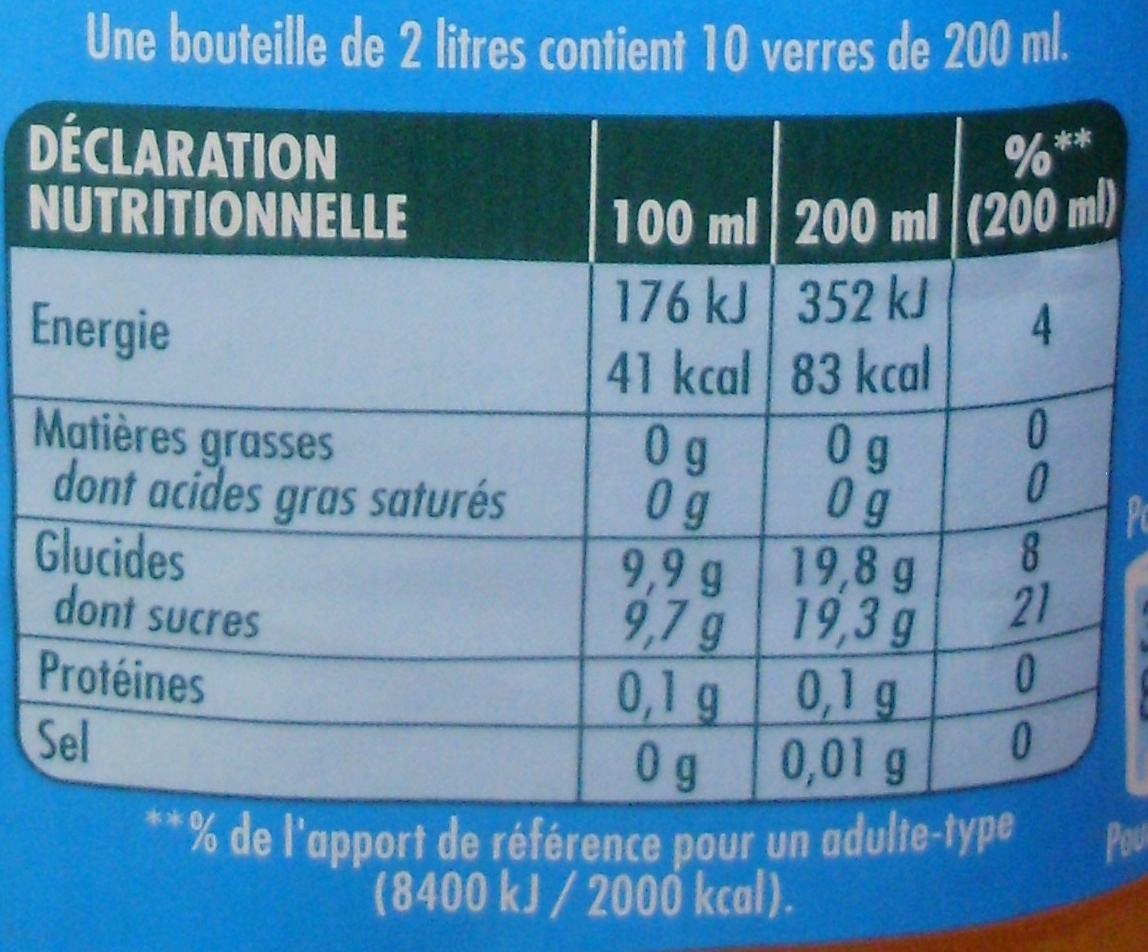Orange à l'eau de source - Oasis - 2 l
This product page is not complete. You can help to complete it by editing it and adding more data from the photos we have, or by taking more photos using the app for Android or iPhone/iPad. Thank you!
×
Barcode: 3124480203632 (EAN / EAN-13)
Common name: Boisson rafraîchissante aux fruits et à l'eau de source
Quantity: 2 l
Packaging: fr:Bouteille et bouchon plastique à recycler
Brands: Oasis, Orangina Schweppes France
Categories: Plant-based foods and beverages, Beverages, Plant-based beverages, Fruit-based beverages, Beverages with orange, Sweetened beverages
Labels, certifications, awards:
No preservatives, Green Dot, fr:Eco-Emballages
Link to the product page on the official site of the producer: http://www.oasisbefruit.com/gamme/gammef...
Stores: Banque alimentaire, Delhaize
Matching with your preferences
Environment
Carbon footprint
Packaging
Transportation
Report a problem
Data sources
Product added on by openfoodfacts-contributors
Last edit of product page on by packbot.
Product page also edited by countrybot, farahriad, feat, jacob80, quechoisir, tacite, teolemon.










